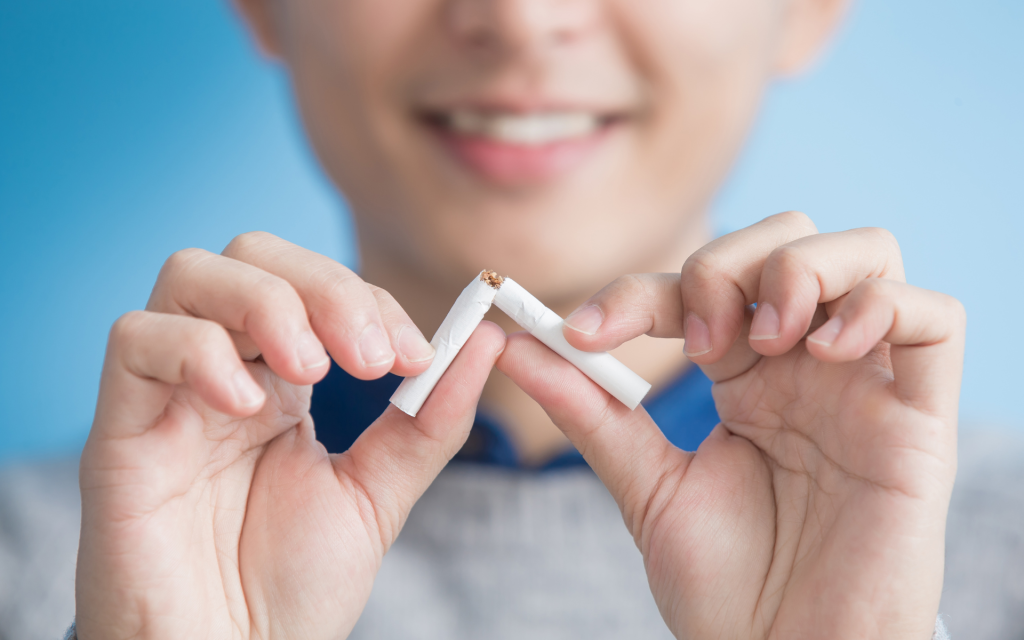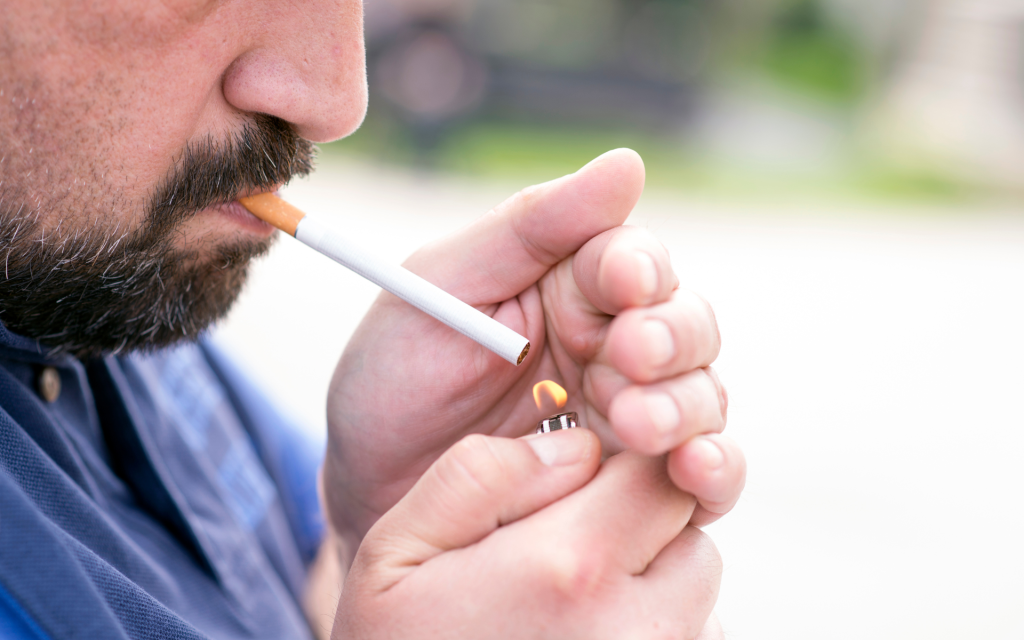Whether it’s procrastinating, eating snacks between meals, spending too much time in front of the screen or being untidy, we all have bad habits that are part and parcel of our daily lives. The importance of these bad habits can vary from one person to another, with some being more problematic and leading to health problems.
Such is the case with tobacco and alcohol consumption, which have significant adverse effects on oral health.
Here is an overview of the main risks associated with tobacco and alcohol consumption on the mouth and teeth, and the most effective ways of minimizing this damage.
The Effects of Tobacco on Oral Health
Periodontal Disease
Tobacco consumption is a major risk factor for gum disease. Smokers are 4 times more likely to develop gingivitis and severe periodontitis than non-smokers. Moreover, tobacco smoke contributes to reduced oxygenation of gum tissue, which can lead to further infections.
Slower Healing
The reduced oxygenation of gum tissue caused by smoking can also slow down the healing process required following oral surgical procedures such as implants or tooth extractions.
Cancer
The carcinogenic chemicals found in tobacco damage oral cells, significantly increasing the risk of developing oral cancer, which can affect many parts of the oral cavity, such as the lips, throat or tonsils.
Bad Breath and Dental Pigmentation
The chemical substances contained in tobacco, mainly nicotine and tar, accumulate in the smoker’s mouth, frequently causing persistent bad breath. These same chemicals contribute to the creation of yellow or brown stains on the teeth and increased tartar deposits.

Consequences of Alcohol on Oral Health
Cancer
Like smoking, drinking large quantities of alcohol over a long period of time increases the risk of developing oral cancer. This risk is even higher for those who smoke and drink alcohol at the same time.
Enamel Erosion
Alcoholic beverages, often rich in sugar and acidity, contribute to the erosion of tooth enamel. Reduced enamel thickness can have a number of impacts on teeth:
- Weakness
- Sensitivity
- Vulnerability to cavities
- Discoloration or yellowing
- Cracking or fracture
Dry Mouth
Alcohol has dehydrating properties, contributing to a reduction in saliva production in the mouth. An adequate quantity of saliva is necessary to maintain good oral health, as it neutralizes acids and eliminates food debris, among other things. Dry mouth therefore encourages the proliferation of bacteria responsible for bad breath, and can also increase the risk of cavities, gum disease and other oral infections.
Irritation of Oral Tissues
Since alcohol molecules are acidic and irritating, they contribute to the irritation of tissues in the mouth, including the gums and oral mucosa, which can lead to pain, inflammation, periodontal disease and ulcers.
Ways to Minimize the Damage Caused by These Substances
Restriction
It goes without saying that the most effective way to reduce the damage caused by tobacco and alcohol to oral health is to stop smoking altogether and limit alcohol consumption to moderate levels. Educating yourself about the harmful effects of smoking and alcohol consumption, not only on oral health but also on overall health, can help you understand, and can thus be a source of motivation to reduce or even stop your consumption.
Oral Hygiene
Proper oral hygiene can also help mitigate harmful consequences. Good dental practice involves regular brushing, flossing and rinsing with mouthwash. To counter the effects of alcohol-induced dehydration, drinking plenty of water is also recommended.
Regular Dental Check-Ups
Professional cleanings and routine examinations are essential to monitor, treat and, above all, avoid oral problems linked to tobacco and alcohol consumption. Regular check-ups at the clinic will help you maintain good oral health and a glowing smile.
You want to protect the health of your mouth? Make an appointment today at Centre Dentaire & d’Implantologie Boucherville. Our team of professionals is here to help!

